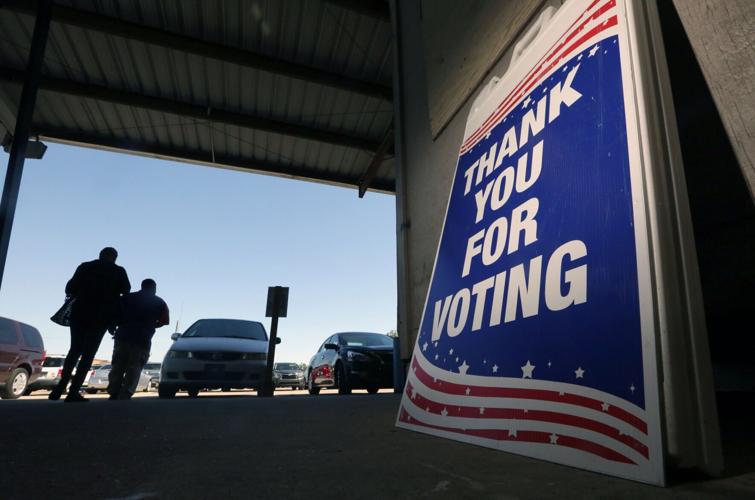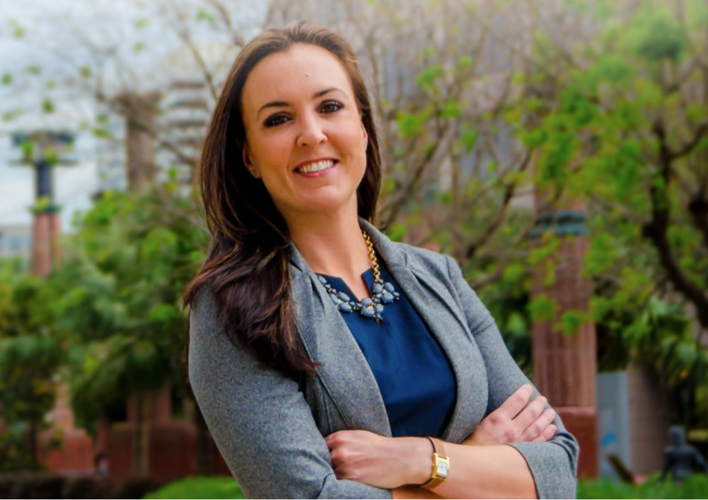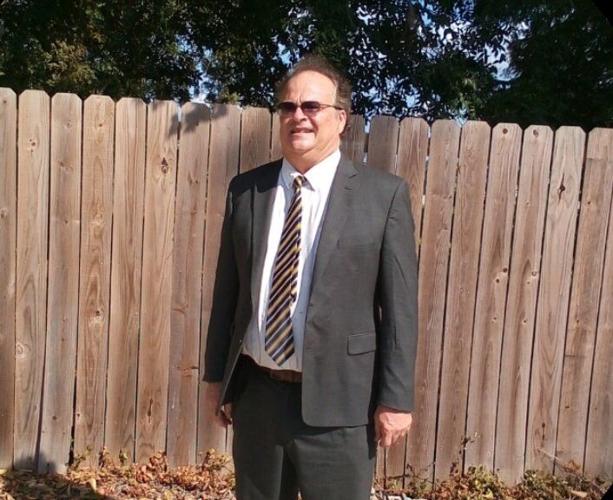As Louisiana Attorney General Jeff Landry campaigns to reach the Governor’s Mansion, the race to replace him has emerged as one of the most intriguing on the ballot this fall.
Voters will choose between Solicitor General Liz Murrill, a Republican and top Landry deputy; state Rep. John Stefanski, R-Crowley; Marty Maley, a Republican prosecutor, and Democrats Lindsey Cheek and Perry Walker Terrebonne, both trial attorneys.
The race for the state’s chief legal officer will shape Louisiana’s relationship with the federal government and future debates over oil and gas leases, abortion and LGBTQ+ health care — the kinds of topics Landry has litigated with gusto over his nearly eight-year tenure. Some political analysts say it will also dictate whether a potential Landry governorship might enjoy consolidated power that would stem from having a collaborator as the state’s top lawyer.
Murrill dominates fundraising in the race, with a current war chest of $1.5 million, campaign finance reports show. Political insiders say her affiliation with Landry and endorsements from U.S. Sen. John Kennedy, R-Madisonville, and other Republicans could make her the likely choice of many conservatives. She pledges to carry the torch of Landry’s office by using her years of legal experience to fight federal government involvement in the state’s affairs.
But in a down-ballot race where most voters remain undecided, the chaotic nature of Louisiana’s “jungle primary” — where two top candidates qualify for the runoff regardless of party — means another candidate could still emerge as a powerful player, political analysts say.
Candidates fight to gain ground
Stefanski has led GOP redistricting efforts in the Louisiana House and authored one of the nation’s toughest penalties for fentanyl distribution. A former juvenile public defender who also works at a small-town law firm in his hometown of Crowley, he has struck a no-tolerance stance on violent crime and drug dealing in the Legislature. Stefanski in an interview cast himself as a collaborator; he has swept up endorsements from sheriffs and DAs.
Maley, a Baton Rouge-area Republican, touts himself as an experienced prosecutor with the know-how to help locals curb violent crime and cut into case backlogs. In an interview, he said he’s running “right up the middle” politically and will likely end up competing with Stefanski for more moderate votes.
Maley reported having $31,000 to spend in early September, while Stefanski reported about $627,000.
Whether one of them can chip away at Murrill’s support among conservatives and pull in some moderate votes hinges on liberals’ commitment to one of the two Democrats in the race, pollsters say.
“Can a Stefanski or Maley break through the noise and get an appreciable number of votes to face Liz in the runoff?” said John Couvillon, a Baton Rouge-based Republican pollster. “If the Democrats unite behind somebody, I’d say it’s probably going to be Liz Murrill versus the Democrat (in the general election).”
Just over a month after qualifying for the race, Cheek had amassed a war chest of $326,000, her campaign reported Friday — compared to about $2,000 on-hand reported by Terrebonne.
In interviews, Terrebonne and Cheek struck contrasts to the conservative stances of their opponents. Cheek espoused a need to better enforce environmental and workplace regulations to protect poor, working people from things like chemical plant contamination. Cheek has had success as a trial attorney in asbestos cases, where she has secured major settlements for consumers against defendants like Johnson and Johnson.
“I think a lot of the legislation that’s been passed lately is pretty extreme,” she said in an interview. “We need to move Louisiana forward, not backward. We shouldn’t have cancer alley. We should be enforcing OSHA and LDEQ regulations.”
Party politics
Murrill is tapping into several of the same donors and political consultants as her current boss. One, tied to the Republican Attorneys General Association, which is close to Landry, and which came under fire for sending robocalls to people ahead of the Jan. 6 riot at the U.S. Capitol, launched an ad attacking Stefanski over his support for bipartisan criminal justice reforms passed in 2017. The digital ad, paid by the Louisiana Freedom Fund, tagged him as “set ‘em free Stefanski.”
Murrill has a lengthy legal resume and has argued multiple cases before the U.S. Supreme Court. She is also a member of the Federalist Society, a legal group that espouses no partisan affiliation and takes no position in election campaigns, but is closely aligned with conservative priorities, including the drive to overturn Roe v. Wade. She is effectively the lead litigator in the attorney general's office, handling lawsuits on matters like abortion access, oil and gas leases and social media censorship.
Murrill said in an interview that she would keep fighting what she called federal government overreach on state issues as attorney general. She also pledged to set up a system to support local prosecutors by sending assistant attorneys general to help prosecute cases.
“Jeff and I share a very similar philosophical approach to government, and it very often leads us to the same place in terms of what we should be fighting for,” she said.
But she decried claims by political insiders and opponents that her campaign has functioned as an extension of Landry’s gubernatorial push. “I've fought over and over to defend our freedoms and our state... Calling me a ‘proxy’ candidate is insulting and sexist,” she said.
Stefanski has made violent crime the cornerstone of his campaign, promising to beef up the AG’s criminal division. He released a TV ad last week highlighting his fentanyl bill — which sets tiered penalties up to life-in-prison for dealing the powerful synthetic opioid — and a slew of law enforcement endorsements.
The two candidates clashed in an endorsement battle earlier this year after the Republican Attorneys General Association backed Murrill. In a letter to association leadership, Stefanski accused a conservative faction within the group of endorsing Murrill without taking the time to hear his platform.
“Allowing a small faction to secretly endorse a candidate without even interviewing a conservative Republican legislator in the race seems like insider D.C. politics at its worst,” Stefanski wrote. “Thankfully, people in my home state, as I’m sure is the same in yours, do not appreciate D.C. insiders attempting to decide their elections.”
The attorneys’ general association did not immediately return a request for comment on Stefanski’s letter.
Low-visibility race, big impacts
The race for attorney general has so far been a low-visibility affair, said Robert Collins, a professor of urban studies and public policy at Dillard University in New Orleans. In that environment, Murrill’s commanding fundraising lead has given her the upper hand.
But Couvillon, the Baton Rouge pollster, said there remains a window for other candidates to reach voters. They’ll just have to start spending money — and fast, he said.
If Landry and Murrill win their respective races, Collins predicted that they would wield more power as governor and attorney general than current Gov. John Bel Edwards and Landry have in their current roles. “Jeff Landry and John Bel Edwards butted heads over a lot of issues because they had different philosophies,” Collins said. “That’s not going to happen here.”
“She will be more powerful, but more importantly Jeff Landry will be more powerful,” Collins added.
If elected, Murrill said she will “enforce the rule of law in a professional, fair, and conscientious manner regardless of who is governor.” Landry's campaign declined to comment.






